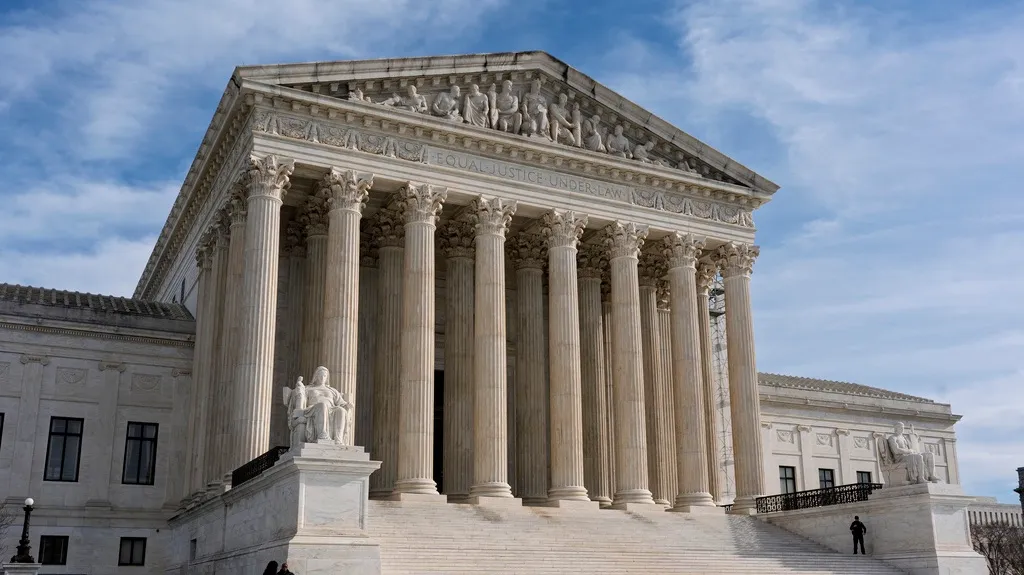September 3, 2014
Gay Inclusiveness Costs Church of Scotland Clergy
Kilian Melloy READ TIME: 3 MIN.
What do you call a church whose clerics leave because they can't deal with the idea that gay men might wear the same sacred cloth?
Some might say: Better off.
But others might worry that a church hemorrhaging clerics the way the Church of Scotland has been could be ready for another moniker: Defunct.
In much the same way the Catholic Church was happy to add to its own fold Episcopalians dismayed by their church's acceptance of gay and lesbian clerics, the Free Church of Scotland has absorbed the Church of Scotland men of the cloth who have fled their original denomination. Both churches are offshoots of the Presbyterian faith.
The Church of Scotland's internal discord over gay clergy has resulted in ten of its clerics departing, The Scotsman reported on Sept. 2. Those defections have resulted, The Scotsman reported, in the church retaining "only one active full-time parish minister covering Assynt, Wester Ross, Skye, North Uist, Benbecula, South Uist and Harris -- an area which is bigger than the size of Wales."
Both pastors, David Macleod and Roddy MacRae, spoke out about how they felt they could no longer devote their service to the Church of Scotland.
"Over the past few years I have found myself to be theologically less and less aligned with the Church of Scotland," Macleod said. "I find myself now to have more in common with other denominations. The decision to demit has not been a decision I have rushed or taken lightly."
MacRae was less diplomatic, sounding almost like an American-style anti-gay fundamentalist. "The Church of Scotland often says it is a 'broad church,'" MacRae declared, "but it has become clear to me that it is not broad enough for Bible-believing Christians."
The Free Church of Scotland could barely contain its glee. Said a spokesperson, "We hope that any newcomers to the Free Church will find their new surroundings refreshing and trust they will share our dynamic, vibrant and contemporary mission."
The spokesperson threw in a swipe at open and affirming denominations, adding: "Over the last five years we have seen a rise in the number of people attending our services, with a particular growth in the number of under-30s. Who says Scotland isn't interested in Biblical Christianity?"
Interpretations of what the Bible says (and doesn't say) about gays and same-sex relationships vary widely, and discussions about what the Bible says about heterosexual divorce, which sacred texts address much more frequently and in much greater detail, are just as widely skirted. In the United States and abroad, religious faith continues to be the most-cited (or at least most admitted-to) reason for anti-gay animus.
Any number of Christian faith traditions have been rocked in recent decades as the gay and lesbian faithful within their own midst have begun speaking up and living openly. Some stripes of Christianity have accepted LGBT people of faith as part of the fabric of their community. Others have not, and have gone so far as to focus on gays and gay issues with an intensity rivaled only by the LGBT community itself. Some denominations have been driven to the point of schism, or seem well on the way to it. All claim to have some palpable sense of God's will in the matter.
The Church of Scotland itself faced an even more catastrophic upheaval in the mid-1800s, when a large portion of its membership split off to form the Free Church of Scotland. While not seeming to face such extreme fracture now, the modern Church of Scotland as an institution is suffering -- as Christians, according to their own faith tenets, must -- for its beliefs.
UK gay news site Pink News summarized the origins of the church's crisis, reporting, "The debate over gay clergy came to the fore in 2009, when Rev Scott Rennie was appointed to Queen's Cross Church in Aberdeen.
"This led Rev Dominic Smart, of Gilcomston South Church on Aberdeen's Union Street, to leave the Church of Scotland saying God 'would not be happy' with gay ministers," Pink News added.
Kilian Melloy serves as EDGE Media Network's Associate Arts Editor and Staff Contributor. His professional memberships include the National Lesbian & Gay Journalists Association, the Boston Online Film Critics Association, The Gay and Lesbian Entertainment Critics Association, and the Boston Theater Critics Association's Elliot Norton Awards Committee.


